 Is this the optimal time to work in healthcare supply chain?
Is this the optimal time to work in healthcare supply chain?
One calls it the 'nexus of mission and interesting challenges'
By Rick Dana Barlow
If the events of the last five years taught us anything about the healthcare supply chain, it's this: It's an unbelievably great time to work in healthcare supply chain.
Yes, you read that right. Go back and reread if you must.
With all the headaches, hiccups and hullabaloos the healthcare supply chain experienced and endured since 2019 — from a global pandemic to rail-shipping-trucking infrastructure wobbles to labor and staffing shortages and strikes to weather-related phenomena — Future Famers remain committed and gung-ho about their chosen profession and the industry in which they serve. A number of them even share some useful insights on what to know before starting a career in healthcare supply chain.

"The supply chain industry is rapidly evolving, making it an optimal time to join," enthused Kate Polczynski, MBA, CMRP, Future Famers Class of 2016, Vice President, Enterprise Supply Chain, Geisinger, Danville, PA. "Advancements in technology and data have supported a new chapter for supply chain professionals, elevating acknowledgement of the role supply chain can have on overall business strategy and value delivery. Supply chain professionals are sought after as a strategic voice and partner in operations across all segments — bringing to the table insights and expertise to drive operational excellence."
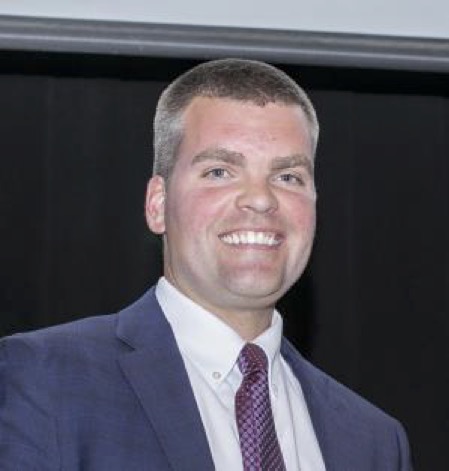
Ryan Burke, Future Famers Class of 2022, Vice President, Strategic Sourcing, Pandion Optimization Alliance, Fairport, NY, sees healthcare supply chain management as "a growing field with ever- increasing visibility on the profession. There are now college programs that focus on the healthcare supply chain. Organizations are investing strategically in the supply chain function." Opportunities span multiple functional areas within the "ec osystem," he added, including provider, supplier, group purchasing organization (GPO) and consultant.

Angie Bruns, MHA, Future Famers Class of 2024, Senior Director, Spend Management and Administration, The University of Kansas Health System, Kansas City, KS, expresses equivalent praise of and respect and support for the profession.
"The importance of supply chain across any industry has never been more evident," she noted. "Globally, individuals understand the personal impact that regulations and shortages in labor and raw materials place on their lives. To healthcare, where odds are medical supplies account as the second highest annual spend for an organization, the importance of ensuring product quality and integrity is coupled with the daily challenges of economic discipline. This is what healthcare supply chain team members do each day. For those seeking a career where problem- solving skills are paramount, alongside serving patients across their community or nation, healthcare supply chain is the industry for you."

Jessica Hurd, Future Famers Class of 2019, Senior Director, Spend Management, Vizient Inc., Irving, TX, concurs.
"Entering the healthcare supply chain field presents a great opportunity for learning from industry leaders who have experienced the evolution of the industry," she noted. "As the industry reaches a turning point, the integration of AI and technology is streamlining processes and improving data quality. In this context, understanding the history of the industry is just as important as building its future."
Hurd offers this advice to those considering healthcare supply chain as a career option: "You can set yourself up for success in the healthcare supply chain industry. Remember to learn from industry leaders, approach the work with a servant's heart, master advanced Excel skills, explore diverse experiences, and stay informed about the industry's developments and challenges."
Pandemic postlude, prudence

A recent global crisis tested the mettle of most healthcare supply chain professionals, and that experience helps to shape endurance and progress, according to Rachel Anderson, Future Famers Class of 2023, Vice President, Supply Chain, DCH Health, Tuscaloosa, AL.
"To pursue excellence, we must transcend the limitations of our current state. Nothing has reaffirmed this more in my lifetime than living and working in the healthcare supply chain field during a global pandemic," she noted. "I was challenged to be better, work harder and never give up, because the amount of effort I expelled was intrinsically linked to the success of my hospital system and our ability to deliver optimal patient care during a time of crisis. Having lived through that, we not only have the opportunity to redefine our future, but we get the privilege to do so. We need the best and the brightest working hand-in-hand to turn this vision into a successful reality. It's an exciting time to join the healthcare supply chain field."
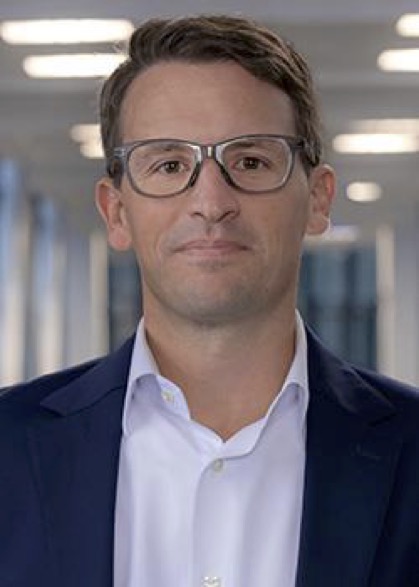
Nate Mickish, Future Famers Class of 2015, Vice President, Strategic Sourcing, Texas Health Resources, and President, OnHand, concurs.
"Coming out of the pandemic and with the rise of so many technological enhancements (e.g., AI/ML, robotics, data visualization, etc.), more people are interested in entering healthcare supply chain. It's a perfect nexus of mission and interesting challenges," he said. "I feel lucky that I got in when I did (nearly 20 years ago) because there are more talented people piling into the profession now than there were then. There are so many interesting and complex problems that need to be solved in the healthcare supply chain and there's never been more tools and resources to address them."
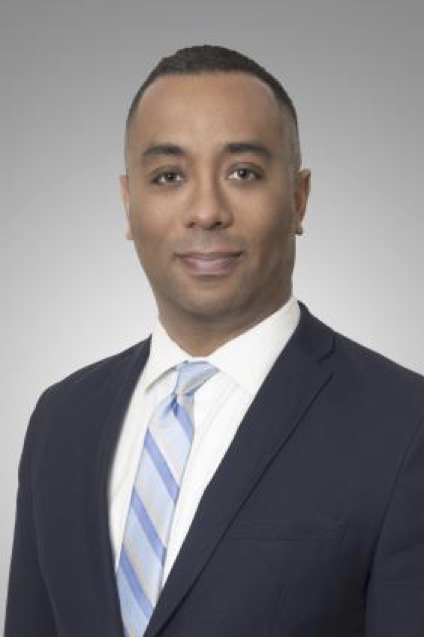
While the global pandemic may have caused and uncovered a flurry of challenges and problems within the entire supply chain — not limited to healthcare — it also fostered a plethora of opportunities to work through and solve those challenges and problems, according to Chico Manning, MHA, Future Famers Class of 2024, System Vice President, Enterprise Supply Chain, PIH Health, Whittier, CA.
"The supply chain industry has always been crucial for the efficient movement of goods and services, but in recent years, especially in the wake of the COVID-19 pandemic, its importance has become even more evident," he noted. "This is particularly true in the healthcare sector, where the supply chain plays a vital role in ensuring the timely delivery of essential medical supplies, equipment and medications to healthcare facilities."
Manning cites several key reasons why anyone should consider now the optimal time to join the supply chain industry and profession, specifically in healthcare.
"First and foremost, the pandemic has exposed vulnerabilities and shortcomings in the global supply chain, particularly in healthcare," he started. "The sudden surge in demand for medical supplies and equipment highlighted the need for more robust, resilient and agile supply chains in the healthcare sector. As a result, there is a growing recognition of the critical role that supply chain professionals play in ensuring that healthcare organizations have the necessary resources to respond effectively to crises and unforeseen disruptions.
"Moreover, advancements in technology have revolutionized the supply chain industry, making it more efficient, transparent and data driven," Manning continued. "In healthcare, technologies such as asset tracking, autonomous guided vehicles and RFID are being increasingly utilized to optimize supply chain operations, improve inventory management, track shipments in real-time, and enhance overall visibility and traceability. This presents a unique opportunity for individuals with an interest in technology and innovation to make a significant impact in the healthcare supply chain field."
Manning also sees rising demand for skilled supply chain professionals in healthcare.
"As healthcare organizations seek to streamline their operations, reduce costs and improve patient care, there is a growing need for individuals with expertise in supply chain management, logistics, business analytics, procurement and inventory control," he asserted. "By joining the supply chain industry in healthcare now, individuals can position themselves for a rewarding and fulfilling career with ample opportunities for growth and advancement. Additionally, the healthcare supply chain industry offers a diverse range of career paths and specializations, allowing professionals to tailor their careers to their interests and strengths. Whether you are passionate about procurement, logistics, distribution, inventory management or supply chain analytics, there are ample opportunities to pursue a fulfilling career in the healthcare supply chain field."
Manning emphasizes diversity in terms of thinking and skill levels.
"Having diverse and tech-savvy leaders in the healthcare supply chain industry is essential for its growth and innovation over the coming years," he noted. "Embracing diversity can bring different perspectives and ideas to the table, leading to better decision-making and problem-solving. Likewise, being tech-savvy is crucial in this digital age to leverage technology for efficiency and improved patient outcomes. It's an exciting time for the industry and having the right leadership can drive positive change and advancements. Now is indeed the optimal time to join the supply chain industry and profession, particularly in healthcare. The industry's increasing importance, technological advancements, growing demand for skilled professionals, and diverse career opportunities make it an exciting and promising field to enter. By becoming part of the healthcare supply chain industry now, individuals can contribute to improving the efficiency, resilience, and effectiveness of supply chain operations in healthcare, ultimately making a meaningful impact on patient care and outcomes."
Commitment to excellence, growth

Eric Tritch, Future Famers Class of 2015, Senior Vice President, Supply Chain & Support Services, and Chief Supply Chain Officer, UChicago Medicine, an award-winning organization, knows all about commitment to excellence and the significance of supply chain in a healthcare enterprise.
"Supply chain is really seen as a key driver of success in healthcare organizations now and a differentiator to ensure a number of key drivers — successful volume growth [for] timely and effective new site development and also effective integration of M&A activity," he said. "Supply chain helps drive margin improvement activity across any number of domains and is also a key player in coordinating effective care processes by ensuring consistency and performance of supplies, services and equipment."
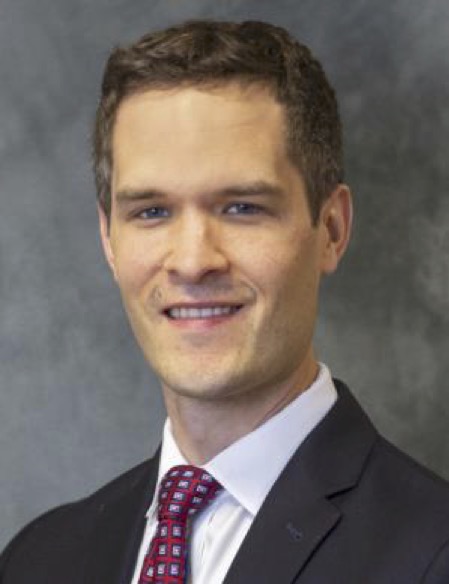
For Jack Koczela, Future Famers Class of 2020, Director, Sourcing & Transformation, Supply Chain, Froedtert ThedaCare Health, Milwaukee, WI, the healthcare supply chain represents a rapidly changing and growing industry and profession.
"With the challenges facing all of healthcare, we will have an increasing need for thoughtful supply chain professionals to help solve new problems," he said. "Supply chain is very relationship-based and also highly digital and [enables us to] be connected to our purpose as healthcare providers."
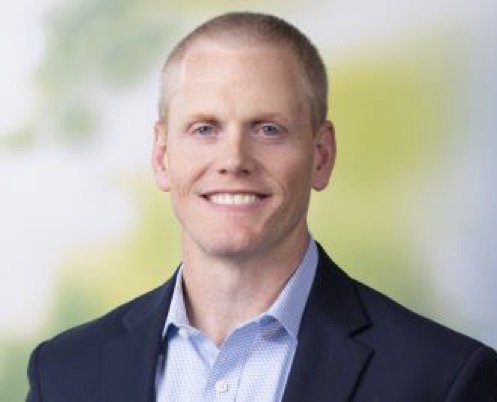
But healthcare supply chain remains a challenge, which isn't necessarily a bad thing, according to Jason Hays, Future Famers Class of 2015, System Director, Purchased Services, Bon Secours Mercy Health, Cincinnati.
"The healthcare business model is constantly evolving, and healthcare supply chains must adapt to the evolving business models and needs of our patients," he said. "Additional external pressure is being applied by supply chain experts like Amazon, not only in the form of direct competition but also in establishing expectations within the minds of our end users who are accustomed to the availability of unlimited options, ease of optimized systems, and one-to-two-day delivery.
"The timing couldn't be better for welcoming new creative thinkers and practitioners into the healthcare supply chain industry as rapid advancements in technology and systems create fertile opportunities for innovators and thought leaders to enter the field," Hays added.

Demand continues to drive the industry and profession, according to Corey Schmidt, CMRP, MBA, Future Famers Class of 2024, Assistant Director, SHS Operations & Spend Management Integration, The University of Kansas Health System, Kansas City, KS.
"The supply chain sector continues to grow as consumers continue to demand products be available faster and more conveniently," he indicated. "Healthcare supply chain is also being tasked with more responsibilities as it is one of few departments which interfaces with every other department within the organization. There is also an opportunity with more of an emphasis on supply chain, creating more roles through growth, and projections of many retirees in the near future."